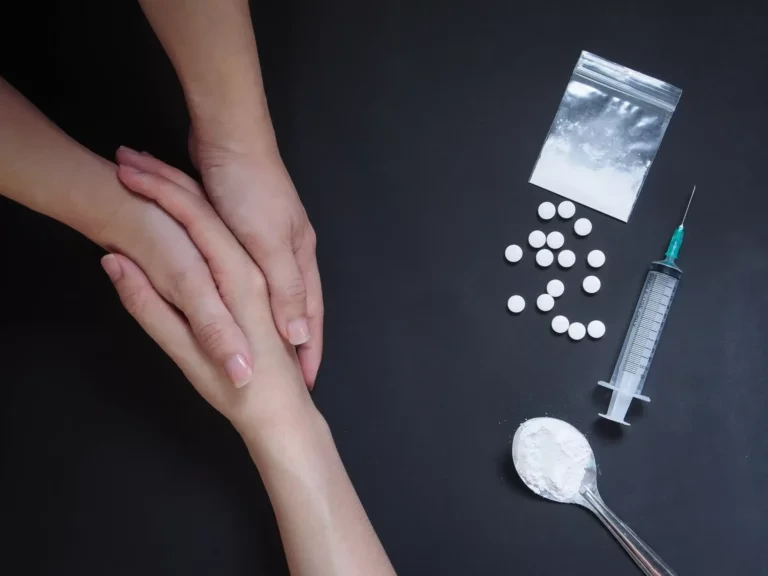Buprenorphine Withdrawal
Buprenorphine is a drug that is not typically associated with having withdrawal symptoms, in fact its use is to curb that very occurrence in people who are coming off other drugs. Unfortunately, there is a very real possibility that someone who has used the substance for good reasons, to make their recovery process from another drug easier, could experience a Buprenorphine withdrawal that may prove difficult to manage. To understand what a withdrawal from this drug is like, it is important to understand a few key aspects of the substance. These aspects include what the drug is used for in withdrawals, what the symptoms of a withdrawal from the substance are, and what someone should do if they find themselves experiencing withdrawals from Buprenorphine. The team at Better Addiction Care prides itself on providing free resources that are designed to help make the journey of someone towards sobriety easier, and this includes providing comprehensive insights into the world of drugs and withdrawal. If you’re interested in learning more about the subject of withdrawal from Buprenorphine, this guide is the perfect place to start.

Uses of Buprenorphine
Buprenorphine is a medication primarily used in the management of opioid dependence and addiction; it has shown some great results for many people. It is an opioid partial agonist, meaning it binds to the same receptors in the brain as other opioids but produces milder effects, helping to alleviate withdrawal symptoms and cravings. One of the key uses of buprenorphine is in opioid withdrawal management for those who are in treatment. When individuals attempt to stop using opioids, they often experience intense withdrawal symptoms, which can be physically and psychologically distressing. Buprenorphine is commonly prescribed to ease these symptoms and support the detoxification process. By binding to opioid receptors, it helps to stabilize the individual and reduce the severity of withdrawal symptoms, allowing for a more comfortable transition. Another important buprenorphine use is in medication-assisted treatment programs for opioid addiction and abuse. It is prescribed as a long-term maintenance therapy to individuals who are dependent on opioids. By taking buprenorphine regularly, patients can avoid the euphoric effects of other opioids, reduce cravings, and improve their overall functioning while they are in recovery. It provides a safer alternative to illicit drug use, allowing individuals to regain stability in their lives and engage in comprehensive addiction treatment without having to bear the worst pains of withdrawal. It’s important to note that the use of buprenorphine should be under the supervision of a qualified healthcare professional. The dosage and duration of treatment will vary depending on the individual’s specific needs and circumstances. Proper medical guidance and monitoring are necessary to ensure safe and effective use of the medication. But it is important to note that Buprenorphine withdrawal is possible and can occur in instances where someone is using the drug for their recovery. Because of this, it is important to know how to spot withdrawal symptoms so that you can tackle the condition before it gets worse.
Buprenorphine Withdrawal Symptoms
Withdrawal from buprenorphine can occur when an individual abruptly stops or significantly reduces their use of the medication after a prolonged period of regular dosing. It is important to note that withdrawal symptoms from buprenorphine are generally milder compared to those associated with full agonist opioids like heroin or oxycodone. Withdrawals from buprenorphine typically emerge due to the body’s adjustment to the absence of the medication. Some common withdrawal symptoms may include nausea, vomiting, diarrhea, abdominal cramps, muscle aches, sweating, anxiety, restlessness, insomnia, and a general feeling of discomfort. However, the severity and duration of these symptoms can vary depending on factors such as the individual’s dosage, duration of use, and their overall physical and psychological health. It is crucial to seek medical guidance and support when discontinuing buprenorphine to manage withdrawal symptoms effectively. Healthcare professionals can aid by gradually tapering the dosage to minimize the intensity of withdrawal and support the body’s adjustment process. Additionally, various behavioral interventions and support systems, such as counseling and peer support groups, can play a vital role in managing the emotional and psychological aspects of buprenorphine withdrawal. These resources can provide individuals with coping strategies, encouragement, and a sense of community during the withdrawal process. While withdrawal symptoms from this drug can be uncomfortable, they are typically less severe than those associated with other opioids. Seeking professional guidance and support is crucial to ensure a safe and successful transition during this period. Our team understands how important yet confusing it can be for someone going through this type of withdrawal, this is why we’re always ready to help provide necessary insights.
Buprenorphine Withdrawal Treatment
Seeking professional help is crucial when it comes to the treatment of withdrawal from buprenorphine. It is highly recommended to reach out to healthcare professionals or addiction specialists who can provide appropriate guidance and support throughout the process. When managing buprenorphine withdrawals, healthcare professionals may employ several strategies to ensure a safe and successful transition. Gradual tapering of the medication dosage is a common approach, allowing the body to adjust gradually to the reduced levels of buprenorphine. This helps minimize the intensity of withdrawal symptoms and allows for a smoother transition. In addition to tapering, comprehensive addiction treatment programs can provide invaluable support during withdrawal. These programs, often available at drug rehab centers, offer a combination of medical care, counseling, and behavioral interventions to address the physical and psychological aspects of withdrawal. They provide a structured environment with access to healthcare professionals and a range of therapeutic modalities to manage cravings, address underlying issues, and foster long-term recovery. To find appropriate treatment options you should consider utilizing a drug rehab directory, such as the one offered by our team free of charge. Our directories provide comprehensive information about reputable treatment facilities and resources available for individuals seeking support during buprenorphine withdrawal. They can help individuals and their loved ones find local or specialized treatment centers that offer tailored programs for opioid withdrawal and addiction. Withdrawal from any drug, including buprenorphine, can be a challenging process, and seeking professional help is crucial to ensure safety, comfort, and long-term success. By reaching out to healthcare professionals and utilizing resources like drug rehab directories, individuals can access the support they need on their journey to recovery.
National Rehab Directory and Other Resources
Taking prompt action and seeking necessary help are crucial steps in overcoming substance abuse and drug-induced withdrawal. Accessing available resources, such as the national directory of drug and alcohol abuse treatment facilities provided by Better Addiction Care, is essential in finding the most suitable treatment team to address your specific needs. By utilizing the directory and filtering your search by location, you can easily locate nearby rehab facilities in your county or city. It is equally important to verify your insurance for addiction treatment coverage. Ensuring your insurance will cover the necessary treatment can help you avoid unexpected financial challenges during the recovery process. Comprehensive preparation for all aspects of recovery is key to success. Recovering from a drug addiction can be challenging, but it is possible with the support of various free resources offered by our team. If you have any questions about these resources and how they can assist you or your loved one in overcoming addiction, please don’t hesitate to reach out to our team. Our addiction treatment experts are available to provide additional insights and guidance through our addiction treatment blog. Remember, dealing with substance abuse or alcoholism may feel like a lonely road, but you are not alone. Making use of the diverse opportunities for recovery and personal growth presented by our experts is an excellent way to be better informed and prepared on your journey to recovery.







